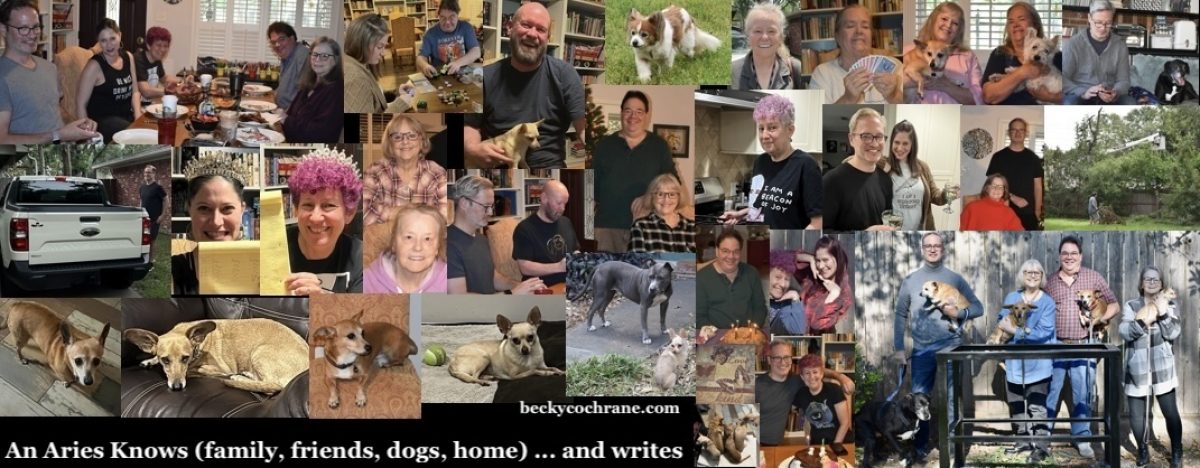Happy birthday today to Lynne! Always love sharing this photo I took at Cheaha State Park on a visit to our favorite lookout point during one of the decades we’ve been friends (who’s counting?!?).

 We aren’t doing our Thanksgiving tomorrow as planned. Timothy had a couple of other clients in need of him, and his first real break when he can relax and hang out for a few consecutive hours will happen on Sunday. We’ll do our Thanksgiving meal then. In the meantime, I’ll be coloring and writing. I’d done another coloring page (shown below) from the Village Charm coloring book even before the bookstore drawing I recently shared. Below it is more flash fiction I hope you’ll enjoy (I went a bit over the thousand-word count, even after editing. This should surprise no one who reads me.).
We aren’t doing our Thanksgiving tomorrow as planned. Timothy had a couple of other clients in need of him, and his first real break when he can relax and hang out for a few consecutive hours will happen on Sunday. We’ll do our Thanksgiving meal then. In the meantime, I’ll be coloring and writing. I’d done another coloring page (shown below) from the Village Charm coloring book even before the bookstore drawing I recently shared. Below it is more flash fiction I hope you’ll enjoy (I went a bit over the thousand-word count, even after editing. This should surprise no one who reads me.).

I.J. drove his beat-up Civic to Amanda’s place with the windows down and his most recent tape playing. His car was so old it still had its original cassette player. One of his Sunday tasks while he did laundry was to create a weekly mix tape. He drew from half a lifetime’s accumulation of songs on computer, album, and CD collections to make a mix he could enjoy during a week’s worth of drives to and from work.
He was running late because Amanda had asked him to stop at the bakery to pick up three dozen mini chocolate cupcakes. She said they’d be perfect for an abundance of vanilla ice cream and chocolate sauce she wanted to use up. Amanda believed most people had a superpower they didn’t recognize. I.J. thought Amanda’s was her ability to throw things together quickly and create the perfect meal, outfit, party, excursion, or event. Her life was like Mary Poppins’ carpetbag: whatever was needed was in it. I.J. wondered if her creativity and spontaneity were a reaction to the precise mathematical and technical demands of her work as a draftsman.
The six who’d be at Amanda’s tonight evolved into a group over several years, when their original connections moved on because of graduations, breakups, jobs, and family crises. As they aged into their thirties, their lives stabilized. Though they had other friends and sometimes romances, changed jobs, and pursued diverse interests, their group stayed solid. Maybe the secret to their longevity was not gathering as a group too often. None of them had ever dated any of the others, so there were no messy memories or grudges among them.
The six consisted of two straight women, one bisexual woman, two straight men, and one asexual man. I.J. had spent much of his young adulthood trying to figure out why he was never sexually attracted to anyone. Counseling had finally given him an identity he could understand. He valued friendships and even deep emotional and spiritual connections; asexuality simply meant he wasn’t interested in physical relationships. That truth felt like a huge weight being lifted, especially when he learned there were plenty of people who were like him.
He thought of his other friends and their superpowers. Craig could fix anything. A weird noise coming from under the hood, anything broken or malfunctioning in a house or apartment, Craig was your guy. And he never wanted anything in return except maybe a pizza and a six-pack. He did all right financially as a landscaper but could probably be a millionaire as a fix-it guy. He liked keeping it a hobby, though, and refused payment.
Nora’s superpower was photography. She still used cameras that shot with actual film and spent weekends, holidays, and vacations capturing stunning images of nature and wildlife. She provided her own chemicals and paper to process them in the photo lab at the college where she taught history. Her colleagues knew her as Elnora; she thought it made her sound more professorial. I.J. thought it was strange that she didn’t teach photography or any other visual art.
Jess was their storyteller. He shared anecdotes about unnamed colleagues and customers, often making them all laugh to the point of tears. I.J. was never sure what parts of Jess’s stories were true or outright fiction. He had no idea how many retailers Jess had worked for over the years, most of them at the big mall thirty miles away. They were surprised when his most recent position managing the local bookstore had lasted two years, and held their breath when a new owner took over. The owner had no retail experience herself, but when Nora found out she’d been a teacher, she said they could stop worrying. A former high school teacher could whip any business into shape. A bookstore, even one that employed quirky Jess, would barely make her blink.
Liz countered that she wished the new owner would take over the hospital, too. Liz worked as a lab tech in every department–except the morgue, as she liked to say. They all worried about the emotional toll of her job. I.J. thought it was Liz’s superpower that saved her. She was a harpist, so gifted that the videos she posted of herself on social media garnered hundreds of thousands of views and likes. Liz never monetized her performances. She wouldn’t do endorsements; she gave no options for donations to her; and she left her comments turned off. The only statement in her bio was that anyone who enjoyed her music, Be good humans and donate your time or money to organizations that assist others.
There was no parking on Amanda’s street, so I.J. pulled into an open space on the nearest block. He ejected the tape, put it in its case, jammed it inside his pocket, grabbed the cupcakes, and left his car unlocked. There was nothing to steal except the car itself, and he doubted anyone would want it.
He spied Amanda’s dog Honey lying near the doorway of No. 9 (he always heard that repeated in the unnamed engineer’s voice from the Beatles’ song “Revolution 9”). Honey liked napping on the sidewalk since there was no parking or through traffic on the street. The front door was left open when the superpowers gathered there.
I.J. stopped walking, struck by a sudden thought. If the others had superpowers, why didn’t he? Without great wealth or the magical skills of a ninja or shapeshifter, with no talent to speak of–he didn’t think asexuality counted–if he was just an ordinary mortal, how did he fit into their group? He resumed walking slowly toward No. 9, and sat on the curb, cupcakes next to him, so he could pet Honey. He could clearly hear his friends’ voices through the open window.
Nora: He’s not answering his cell.
(I.J. suddenly realized he’d left his phone at home.)
Jess: He’s never late.
Liz: I hope he didn’t have an accident.
Craig: More likely that car of his crapped out. I need to give that thing a checkup.
Amanda: He has to come! Otherwise, we’ll have no music!
Liz: We need to find him. Those tapes he puts together are my coping mechanism.
Jess: They’re my emotional support music.
Liz: Do you know how many of his choices inspire what I perform and share on my social media?
Amanda: His tapes remind me of decades of music I’ve loved and can put on my office playlists.
Nora: You do that, too? I listen to mine in the darkroom. My students want them playing in class while they take exams.
I.J. realized he was smiling like an idiot, cleared his throat, and said loudly, “Sorry, Honey, the cupcakes are chocolate. Pretty sure I can talk Amanda out of a safer treat for you.”
He and Honey both stood and walked toward the open door of No. 9.











